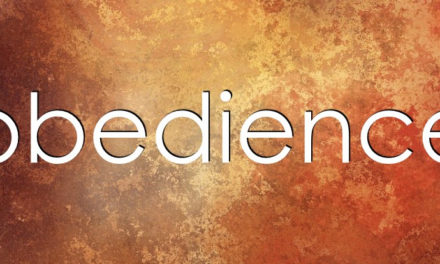A short while ago someone posed this question to me. I began to happily tell him all about my read-through-the-Bible-in-a-year plan that I was faithfully following. I also mentioned that I was doing some “extra” reading in the New Testament. I was pretty pleased with my success at sticking to my goals. Further, I was pleased to point out some leap-off-the-page revelations I’d been receiving in my readings. I was going to incorporate these “heavy-revvies” in my upcoming sermons. They were going to bless the socks off my congregation.
As I was continuing down this track, my friend interjected, “Yes, but how is God speaking to you personally? What’s he saying to you?” He pointed out that in one of my blogs I’d referred to the Bible as God’s love letter to humanity. If the Bible is God’s love letter, how is it that you are reading it – in your devotional time – exegetically and analytically in order to create sermons for your congregation? Busted!
When Elsie and I first began to hang out we would exchange emails. Whenever I received an email from her I would read and reread each sentence and paragraph trying to understand what she was saying to me. At that point, I wasn’t at all interested in telling others what she was saying. My focus was feasting on her words and discerning who she was, and especially how she felt about me!
If, like Elsie’s emails, the Bible is God’s love letter, and the primary way that He speaks to us, then wouldn’t it be wise to read it that way? The mental picture I have is sitting on my couch and reading a book. The author of that book just happens to be seated across the room. When I have a question about what I am reading would I not ask the author what she means? In a very profound way, the author of the Bible is always with us. Would it not be wise to ask him, as we read his love letter, “What are you saying to me?”
My exhortation
- Read the Bible! It really is the primary way that God communicates with us. We get to wrestle with its complexities to discover who he is, how he interacts with humanity and how he feels towards us. I believe it is best read in community; you get to bring something to the table.
- Yes, study it! Learn how to interpret it based on genre, occasion, historical and grammatical analysis, etc. I’m totally into that. But …
- Meditate on it! Read it slowly, meditatively, asking the question, “Lord, what are you saying to me? What do you want to reveal to my heart in this passage?” God, it turns out, is a very personal God. “My sheep hear my voice, I know them, and they follow me.”, says Jesus. We have the capacity to hear God’s voice and his deepest desire is to relate to us heart-to-heart. We short-change ourselves when we don’t let his words abide deeply in us. The outcome of this is that we don’t abide in him. Therefore, fear, anxiety and the cares of this life end up having too much influence in our hearts.
Holy Spirit, would you help us become more attentive to the voice of our Bridegroom King. Lord, we want to live aware of you speaking with us Spirit to spirit. Lord, you have the words of eternal life, we have nowhere else to go.





This is a fabulous article that has left me speechless. It has so profoundly touched my heart and my mind and my soul! It inspires me to read the word of God and listen to his voice as I read.
Very insightful .
Amen to points 1, 2 and 3. There’s that 3 in 1 again. A great message. Look forward to those “heavy revies” to come as well… 😇
Great article, Ramesh. I’m convicted again (or shall I say ‘busted’) that this multi-layered Word of God is so very personal as one of it’s key layers! Next time we chat, please ask me if I’m asking Him what He’s trying to say to me!